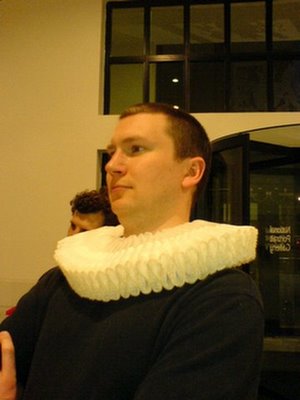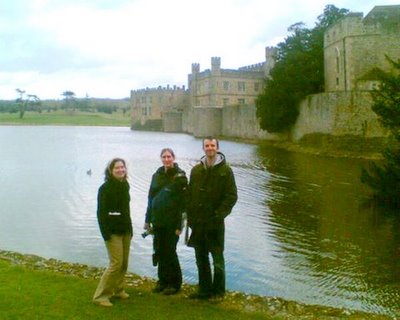Currying with birds is good because you get to finish off all their food – and also, if you’re lucky, their beer. Mmm.
I asked what top facts about England the acolyte would be taking home with her, and then had to explain the whole difference between “Britain” and “England”. Someone I spoke to this morning who works for the British government admitted he wasn’t entirely sure of the difference himself.
(From the other end of London, I can hear Nimbos squawking in horror.)
“Britain” is a bit of a pickle of a term, because it can be used to mean slightly different things. It is often used to mean the same as the United Kingdom – the collective name for the gang of England, Scotland, Wales, Northern Ireland and the various isles and islands (not just those immediately nearby, but ones as far off as Gibraltar and the Falklands).
“Britain” is also sometimes used to mean the single island comprising England, Scotland and Wales – and so not include Northern Ireland or the Isle of Man. Little islands that are very close, like the Isle of Wight, get included in this Britain.
 So it can mean the whole, or part of the whole. And since it’s about nationality, people can get a bit hot and bothered about how it’s used (see the comments at the end of this piece about Britain’s flag, with people all steamed up about what the thing’s called).
So it can mean the whole, or part of the whole. And since it’s about nationality, people can get a bit hot and bothered about how it’s used (see the comments at the end of this piece about Britain’s flag, with people all steamed up about what the thing’s called). Some people prefer just to avoid all the hassle and not the name “Britain” at all. They use “Great Britain” to mean the island itself, and “British” to mean “of the United Kingdom”.
England is just one bit of Britain/Great Britain/the UK. The largest, mind, and the richest. And, history tends to show, the most vicious in the fighting.
The general trend to thinking of ourselves as being English rather than British is a reasonably recent thing (not as recent as the Dr would like, though. She thinks 1996 is “a couple of years ago”). It’s probably connected to Wales, Scotland and Northern Ireland getting their own parliaments in the last decade (even if the latter is on hold). But people (well, pubs) seemed more keen to celebrate St George’s Day on Sunday than I’ve ever seen before.
Here are some top facts for any aliens reading this:
- St George wasn’t English – and probably never even came to England. He was a soldier in the Roman army, and so (what with the killing) a favourite of the Crusaders. By the 14th century he was seen as an icon of chivalry – not shagging other people’s wives, and not killing anyone from church. That’s the sort of courtesy we English love, which is why we took him as our patron.
- The “Houses of Parliament” are not the name of the building, but of the two groups of people nattering inside – the Lords and the Commons. “House” means a family of people, like a “suit” in playing cards. The building is really called the Palace of Westminster.
- Big Ben is the name of the bell inside the Palace of Westminster’s clock tower, not the tower itself. (It’s also sometimes called St Stephen’s Tower, and that’s not right either. So there.)
- The bridge with the towers on it (next to the Tower of London) is called Tower Bridge. London Bridge is the boring-looking one next along westwards. (Acolyte knew this one, admittedly.)
- We don’t call them “Bobbies”; they’re “Coppers”
 Another silly James Bond thing: while having a BIG FIGHT with a villain, Bond remembers he’s got a delicate glass vial of DEADLY POISONOUS WATER in his top pocket. Mid scuff, he checks it hasn’t broken. By quite a miracle considering how much he’s been knocked about and how much other glass has been broken, it hasn’t. Phew.
Another silly James Bond thing: while having a BIG FIGHT with a villain, Bond remembers he’s got a delicate glass vial of DEADLY POISONOUS WATER in his top pocket. Mid scuff, he checks it hasn’t broken. By quite a miracle considering how much he’s been knocked about and how much other glass has been broken, it hasn’t. Phew.So what does he do next? Puts it back in his top pocket and carries on fighting. You numbskull, 007!
Oh, and Bond’s English despite his parents being Scottish and Swiss. And his being played in the films by chaps from Scotland, Australia, Ireland and Wales. And Stockwell.














